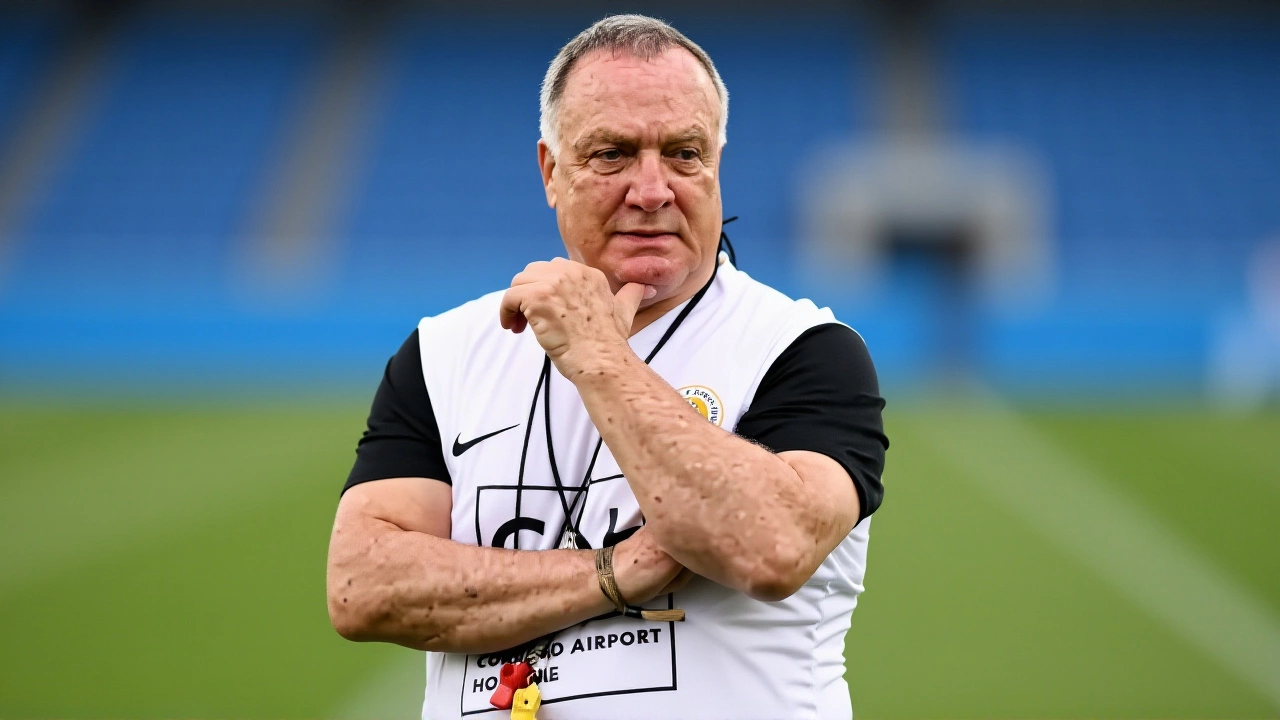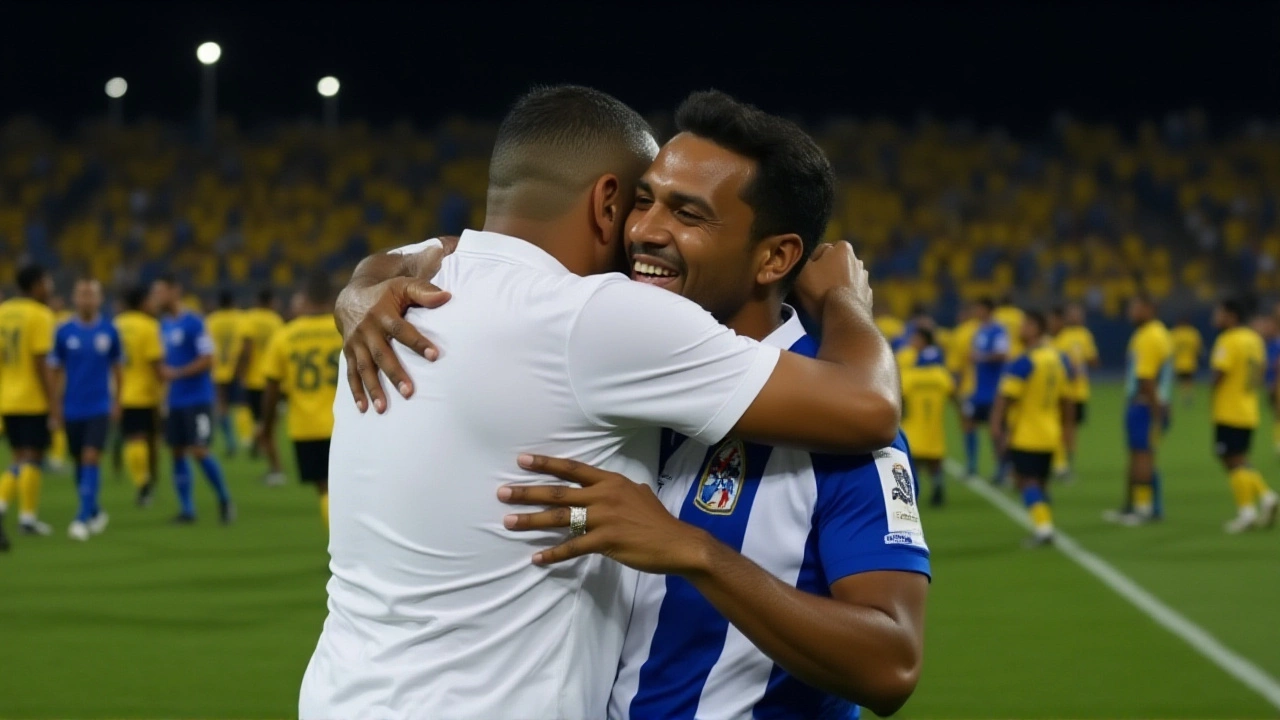When the final whistle blew at 90'+11' in Kingston on November 18, 2025, the tiny Caribbean island of Curaçao didn’t just hold off Jamaica — they shattered a 92-year-old barrier in global football. The 0-0 draw sealed their place in the 2026 FIFA World Cup , making them the smallest nation ever to qualify for the men’s tournament. With a population of just 160,000, Curaçao now joins the world’s elite, a feat no country their size has ever achieved. The result, confirmed by ESPN and CONCACAF, wasn’t just a win — it was a seismic shift in football’s hierarchy.
A Nation Built on Grit, Not Population
Curaçao didn’t qualify by accident. They finished Group B with 12 points — three wins, three draws, zero losses — outpacing Jamaica (11 points) on goal difference. Their defense, anchored by goalkeeper Andre Blake and a backline that held firm under relentless pressure, conceded just two goals in six matches. Meanwhile, Jamaica, playing in front of a roaring crowd at the National Stadium in Kingston, needed a win to advance. They had the chances: Shamar Nicholson rattled the crossbar, and a last-gasp header from Cphus was cleared off the line. But Curaçao’s discipline held. Even when John Russell was sent off with a second yellow card in the 88th minute, the islanders didn’t buckle.
Here’s the thing: Curaçao had never even reached the final round of CONCACAF qualifying before 2025. Before 2011, they were part of the Netherlands Antilles — a team that never made it past the first round. Now, as an independent FIFA member since 2011, they’ve done the unthinkable. Their journey was never about star power. No Neymar. No Mbappé. Just Leandro Bacuna, a veteran midfielder playing in the Dutch second division, and Jeremy Antonisse, a 24-year-old winger who nearly won it with a left-footed strike that sailed just over. The squad? Mostly semi-pros, teachers, police officers, and students who train after work. One player works at a local pharmacy. Another is a schoolteacher in Willemstad.
The Moment That Changed Everything
The final 10 minutes were pure theatre. With the score still 0-0, Jamaica poured forward. The crowd roared. The air thickened. Then came the sequence CBS Sports called "World Cup hopes hanging in the balance." A cross from Pinnick, a header from Cphus, a desperate clearance by Curaçao’s Abyspo. The ball bounced, twisted, and rolled away — into safety. As the final seconds ticked down, fans in Willemstad poured into the streets. In a bar in Otrobanda, a man hugged a stranger, crying. "We’re going to the World Cup," he kept saying. "We’re actually going."
That’s the power of this moment. It’s not just about football. It’s about representation. For decades, small nations were written off as footnotes in World Cup qualifying. But Curaçao proved that with structure, belief, and tactical intelligence, even the smallest can stand tall. Their coach, Guus Hiddink — yes, that Guus Hiddink, the Dutch legend who led South Korea to the 2002 semifinals — took over in 2023 and instilled a culture of resilience. "We don’t have money," he told reporters after the match. "But we have heart. And heart doesn’t need a budget."
What This Means for CONCACAF
The 2026 World Cup will feature 48 teams, with six automatic spots from CONCACAF. Curaçao’s qualification doesn’t just make history — it reshapes the region’s expectations. Trinidad and Tobago (9 points) and Bermuda (0 points) were their neighbors in Group B. The gap between them and Curaçao wasn’t talent — it was organization. Curaçao’s football federation invested in youth academies, hired foreign coaches, and prioritized long-term development over short-term results. Now, other small nations — like Suriname, Guyana, or even the British Virgin Islands — will look at this and think: "If they can do it, why not us?"
And it’s not just about pride. Qualifying brings revenue: FIFA distributions, sponsorships, tourism spikes. Curaçao’s government has already pledged $2.3 million to support the team’s World Cup preparations. That’s more than their entire annual sports budget in 2020.

What Comes Next?
Curaçao will be placed in one of the groups when the 2026 draw happens in December. They’ll face giants — Brazil, Germany, Spain — and no one expects them to advance. But that’s not the point. Their journey is already written in history. They’ve shown that World Cup qualification isn’t about population size, GDP, or stadium capacity. It’s about belief. About showing up when the odds are 100-to-1. About refusing to quit when the world assumes you’re already out.
They won’t be the favorites. But they’ll be the ones everyone remembers.
Frequently Asked Questions
How did Curaçao qualify for the World Cup despite having such a small population?
Curaçao qualified by finishing top of CONCACAF Group B with 12 points from six matches — three wins and three draws — while conceding only two goals. Their success came from disciplined defense, tactical discipline under coach Guus Hiddink, and a focus on youth development since joining FIFA in 2011. Unlike larger nations, they didn’t rely on star players but built a cohesive unit with semi-pro athletes who train around day jobs.
Who is the smallest nation previously to qualify for a World Cup?
Before Curaçao, the smallest nation to qualify was Iceland, with a population of about 330,000 when they reached the 2018 World Cup. Curaçao’s population of 160,000 is less than half that size, making their qualification unprecedented. No nation under 200,000 people had ever reached the men’s World Cup finals before.
Why is this qualification so significant for Caribbean football?
Curaçao’s success challenges the assumption that only wealthier or larger CONCACAF nations can qualify. It proves that structured development, coaching expertise, and community support can overcome resource gaps. Nations like Jamaica, Trinidad and Tobago, and Honduras have long dominated regional qualifying — now, smaller islands have a blueprint to follow, potentially reshaping the future of Caribbean football.
What role did Guus Hiddink play in Curaçao’s success?
Hiddink, the Dutch legend who coached South Korea to the 2002 World Cup semis, took over in 2023 and transformed Curaçao’s approach. He implemented a structured 4-4-2 system, emphasized defensive organization, and prioritized mental toughness over technical flair. He also secured sponsorships and pushed for better youth infrastructure. His leadership gave the team belief — and a clear path to qualify.
How did Jamaica lose despite having more resources and a larger population?
Jamaica had more financial backing and professional players, including Premier League stars like Demarai Gray. But they struggled with consistency, lost two group games early, and couldn’t convert key chances in the final match. Their late red card to John Russell disrupted their momentum, and Curaçao’s disciplined counter-pressing neutralized their attacks. In the end, experience and composure won over star power.
Will Curaçao have a chance to win a game in the 2026 World Cup?
While no one expects them to advance past the group stage, Curaçao has the potential to pull off a surprise. Their defense is tight, and in football, anything can happen in one match. A draw against a top team — even a 1-1 tie — would be a historic achievement. More importantly, their presence alone redefines what’s possible for small nations in global football.
